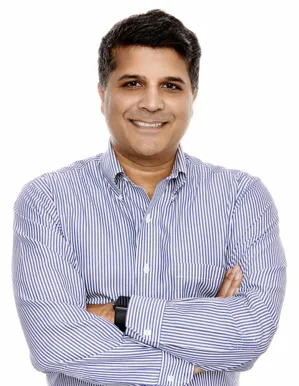Merck & Co.’s recent $1.3 billion deal to reel in Modifi Biosciences seemed to ignore pharma’s common dealmaking wisdom. It targets an early-stage, aka riskier, asset, and it’s in glioblastoma, a challenging therapeutic area plagued with drug failures.

So why did Merck snap up the Yale University spinout? If you ask Dr. Ranjit Bindra, one of Modifi’s co-founders, the appeal is in its approach to drug design.
Modifi’s preclinical candidate was developed with a DNA-modifying platform and inspired by a glioblastoma patient whose tumor developed resistance to the Merck drug, temozolomide.
Temozolomide was first approved to treat brain cancer in 1999 and remains the primary — and sometimes only — option for glioblastoma. However, nearly half of patient tumors mutate and become resistant.
Initially, there was a lot of skepticism that temozomide’s limitations could be overcome. After all, the drug had been around for decades and many researchers had failed to make analogs that improved outcomes.
“We took a totally different angle, a precision oncology approach, very rational drug design and we were able to make a big discovery with simple changes to the molecule,” Bindra said.
The result was KL-50, a novel DNA-damaging agent that distinguishes itself with its selectivity. Specifically, the drug only targets the DNA of malignant cells while sparing healthy ones to halt replication. Modifi plans to test alone and in combination with other treatments.
“What Merck recognizes is that it's a whole new way to treat tumors. We’re modifying the DNA. It's not a kinase inhibitor. It's not a broad-spectrum chemotherapy. We call it precision chemotherapy. It's targeted DNA damage to tumor cells that have specific biomarkers,” Bindra said.
The drug could also have applications beyond brain cancer, such as colon and lung cancers, sarcoma and neuroendocrine tumors, he said.
A treacherous path
Modifi had to beat substantial odds to move its idea forward. Investors often shy away from glioma research due to the small patient numbers and daunting scientific challenges. Despite decades of research, survival rates for glioblastoma, the most common glioma, are abysmal. Only 25% of patients are still alive a year after diagnosis.
Gliomas also have limited market potential, with only 10,000 to 15,000 cases a year, so backing a treatment that targets a subset of these patients isn’t appealing.
“No one wants to invest in it,” Bindra said.
“We mailed the drug out to a lot of labs and it’s one of the few times people call us back and say, ‘This drug is unbelievable. I can't believe it's working in the way it is.’”

Dr. Ranjit Bindra
Co-founder, Modifi Biosciences
At one point, Modifi was on the brink of collapse. But the startup clawed its way back with an infusion of seed money, much of it from charitable organizations including the American Cancer Society’s BrightEdge, The Sontag Foundation and the National Brain Tumor Society. A 2022 study validated the approach, which helped convince Merck of its potential, Bindra said.
In late October, Merck shelled out $30 million through a subsidiary to acquire Modifi, which Bindra launched with another Yale professor, Seth Herzon. The deal could ultimately be worth up to $1.3 billion.
“Merck has always been interested in glioblastoma because of unmet need. But they were looking for the right asset, which is a high quality, very valuable potential asset,” Bindra said.
While KL-50 has yet to enter clinical trials, it’s turned heads in early-stage testing.
“We mailed the drug out to a lot of labs and it’s one of the few times people call us back and say, ‘This drug is unbelievable. I can't believe it's working in the way it is,’” Bindra said.
Modifi plans to bringKL-50 into the clinic within the next 18 months, which would be a standout achievement for a compound developed just a few years ago.
Ultimately, Bindra is aiming to finally move the needle in a field beset with disappointments.
“I've been treating glioblastoma patients for 13 years as a faculty member and can count on one hand the number of patients that are still alive,” he said.
Bindra also hopes Modifi’s path will send a signal to other Big Pharma companies that it’s OK to invest in the disease.
“It's hopefully going to tell the world that if you develop good assets for glioblastoma, large companies are willing to consider them. But you've got to really focus on the core science,” Bindra said.







